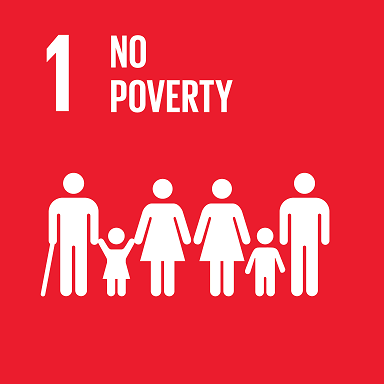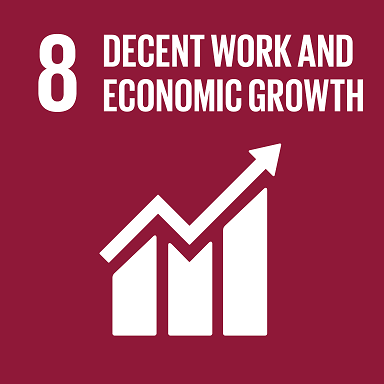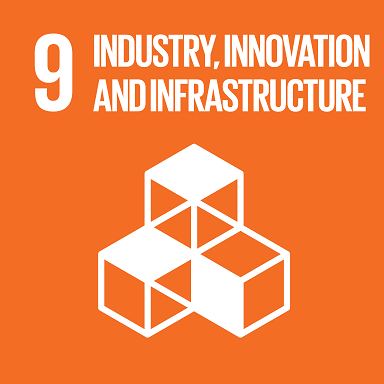Success Stories
Agencia Presidencial Para la Cooperación Internacional (APC) - Colombia
Cámara de Comercio de Bogotá - Colombia




Successful application of the knowledge transfer methodology in the 'MISE' tool
Summary of the case:
Thanks to the project, a methodology for knowledge transfer has been created and implemented, which is considered as a best practice that can be found in this Knowledge Bank of the ADELANTE Programme. Thanks to this methodology, important tools for business development and support to entrepreneurship have been transferred from Colombia to Mesoamerica. The most important of these are the MISE (Integrated Model of Business Services) and the 'Heroes Fest' (a tool to boost the entrepreneurial mindset and culture).
The experience of transferring the MISE tool is summarised below:
One of the objectives of the EDEM Project is to contribute to the strengthening of the business community in the countries of Mesoamerica through the chambers of commerce, which are entities that represent the interests of the entrepreneurs. This strengthening, like other objectives of the project, is based on the transfer of best practices from the Colombian institutions to the beneficiary countries.
The Bogota Chamber of Commerce (Cámara de Comercio de Bogotá - CCB) has its own model for business services, the Integrated Model of Business Services (MISE), which has been fine-tuned over the last 10 years and is fundamentally focused on revealing the needs that an organization has in different thematic areas (strategy, sales, internationalisation, finances and production) through a basic business diagnosis which is applied to all its users. Based on this definition, the CCB team provides direct support to strengthen companies in a customised and targeted manner, by designing a specific service route for each company, for which the CCB and its team provide continuous monitoring. These actions or the fulfilment of the entrepreneur's goals are called 'business dreams'. Once users have fulfilled their first dream, they repeat the business diagnosis, revealing new needs in their management processes or other dreams that were not initially identified.
The entire MISE methodology and the CCB know-how were prepared, arranged and systematized in such a way that it could be transferred to other chambers of commerce and, thanks to the knowledge transfer methodology of the EDEM project, it could be transferred to three chambers of commerce in the region, namely the Chamber of Commerce of Cartagena, the Chamber of Commerce and Industry of Tegucigalpa and the Chamber of Commerce and Services of Nicaragua.
The 5 phases of the knowledge transfer methodology of the EDEM project applied to this tool are described in detail hereafter. The first phase of the process - socialization - took place in 2017 when the beneficiary chambers of commerce learned about the model in a general way, identified its benefits and became interested in deepening the subject. The second phase - exchange - took place during 2018 when delegates from the beneficiary chambers of commerce participated in 5 different workshops led by the CCB where they learned all the particularities of the model and, using 'learning by doing' principles, the CCB technical teams started adapting the learning to the reality of each institution and defining their own scope. The third phase - implementation - was carried out during 2019, when the beneficiary chambers of commerce took the MISE model from the "classrooms" to direct business attention, focusing on a pilot group of up to 100 companies for each of the beneficiaries, with result indicators that were defined for each company in order to contribute to the fulfilment of their "business dreams". The fourth phase, - sustainability - was developed with the support of the CCB in follow-up sessions and was aimed at empowering the decision-makers of each of the beneficiaries to give continuity to the actions of the MISE model once the EDEM project is completed, especially where successful results have been generated and where all levels (managerial, executive and administrative) have been involved in the actions of the MISE methodology. The fifth phase - replication - focused on generating conditions within the beneficiaries and the CCB to improve the methodology and start the transfer process with other interested chambers of commerce. Thanks to this process, during 2019, given the great impact of the tool in the region, a second phase of transfer of the MISE model was initiated, this time involving other chambers of commerce such as the Chamber of Commerce and Production of Santo Domingo, the Chamber of Commerce and Services of El Salvador and the Chamber of Commerce of Palmira, in Colombia.
Main learning and recommendations:
• Having a knowledge transfer methodology from the beginning of the implementation phase and from the design phase of each tool, without waiting for the final learning.
• Involving, from the beginning and throughout the whole cycle, all actors, from knowledge providers to recipients, executors and final beneficiaries, ensuring at all times the commitment of the public sector and its coordination with the private sector and the different actors.
Achieved impacts and objectives:
Objectives:
- Thanks to the transfer of the MISE model, 6 chambers of commerce in the region have adapted and owned a successful business management model for their entrepreneurs (achieving in the same transfer process that at least 450 entrepreneurs have succeeded in fulfilling their 'business dreams').
Impacts:
- A powerful contribution to SDG 8 (Decent Work and Economic Growth) has been made by supporting "productive activities, decent job creation, entrepreneurship, creativity and innovation, and encouraging the formalization and growth of micro-, small- and medium-sized enterprises (target 8.3).
- Capacities and skills have been strengthened and the supply of services by actors providing business development services has increased.
- The visibility of Business Development Services has been increased.
- A change of perspective has been achieved in relation to knowledge management processes, understanding transfer not as a one-off intervention originated by a project, but rather as a new permanent and strategic service that should be included in the services portfolio of each institution.
Key success factors:
- Having a robust, rigorous and comprehensive methodology for knowledge transfer.
- Commitment and motivation of all actors, from knowledge providers to recipients, implementers and final beneficiaries.
- Support from public institutions with expertise in the subject and their capacity for coordination.
- Permanent accompaniment of the knowledge provider, opting for moments of face-to-face work.
- Permanent attention to similar initiatives and participation in learning events in the countries involved or in third countries, which provide complementary learning and visions.
The added value of Triangular Cooperation: (more information here)
1. Building ownership and trust.
2. Promoting complementarity and increasing coordination in development cooperation.
3. Sharing knowledge and learning jointly.
4. Co-creating solutions and flexibility.
5. Enhancing the volume, scope and sustainability of Triangular Cooperation
6. Achieving global and regional development goals through strengthened partnerships for sustainable development.
RELATED FILES
To develop and apply broad and participatory methodologies for knowledge transfer, so that all the learning generated can be replicated in the different countries by each of the participating institutions and applied beyond the implementation phase.
Thanks to the project, a methodology for knowledge transfer has been created and implemented, which is considered as a best practice that can be found in this Knowledge Bank of the ADELANTE Programme. Thanks to this methodology, important tools for business development and support to entrepreneurship have been transferred from Colombia to Mesoamerica. The most important of these are the MISE (Integrated Model of Business Services) and the 'Heroes Fest' (a tool to boost the entrepreneurial mindset and culture).





